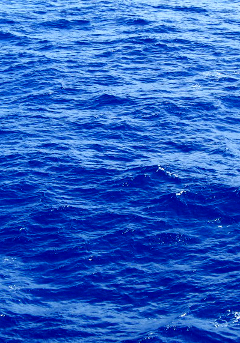High seas deal surfaces
 The United Nations has announced the official launch of its High Seas Treaty.
The United Nations has announced the official launch of its High Seas Treaty.
The landmark agreement, also known as the Biodiversity Beyond National Jurisdiction Treaty, establishes a framework to govern activities like fishing, mining, and oil extraction in international waters, which have been jeopardising marine ecosystems worldwide due to a lack of oversight.
Nearly 200 nations have signed the pact after 15 years of discussions, aiming to prevent further species extinctions caused by overfishing, oil extraction, deep-sea mining, and other harmful practices.
The treaty introduces large-scale marine protected areas in international waters, extending beyond the 12-mile (22.24km) coastal waters protected by individual countries.
It also includes guidelines for assessing the environmental impact of activities like fishing and mining, requiring countries to report their findings to the UN.
To oversee compliance with the treaty, a new body called the Conference of Parties will be established.
The treaty now needs ratification by at least 60 member nations to take effect.
In the United States, the Senate must either approve or deny a resolution for UN treaty ratification, as the US is not a party to the Law of the Sea.
Advocates are hopeful that the required ratifications will be completed by the next UN ocean conference in June 2025.
The High Seas Treaty is the first global endeavour to govern international waters, covering approximately two-thirds of the Earth's oceans.
Previous attempts, such as the UN Convention on the Law of the Sea adopted in 1982, focused on regulating oceans within 12 nautical miles of coastlines.
Urgent action is needed as current statistics reveal that 90 per cent of big fish populations are depleted, and 50 per cent of coral reefs are destroyed, mainly due to overfishing disrupting food chains and marine ecosystems.
The adoption of this treaty brings fresh hope for protecting marine life beyond national boundaries, combatting pollution and unsustainable fishing practices, and promoting cleaner oceans.
It also emphasises sustainable management of fish stocks, addresses the adverse effects of climate change on oceans, and supports the realisation of the UN’s 2030 Agenda and Sustainable Development Goals.
The treaty acknowledges the rights and traditional knowledge of indigenous peoples and local communities, along with the need for fair and equitable sharing of benefits.
The adoption of the High Seas Treaty is viewed as a crucial step towards ensuring the survival of our seas for future generations, providing a powerful tool for the conservation and sustainable use of marine biodiversity in areas beyond national jurisdiction.







 Print
Print